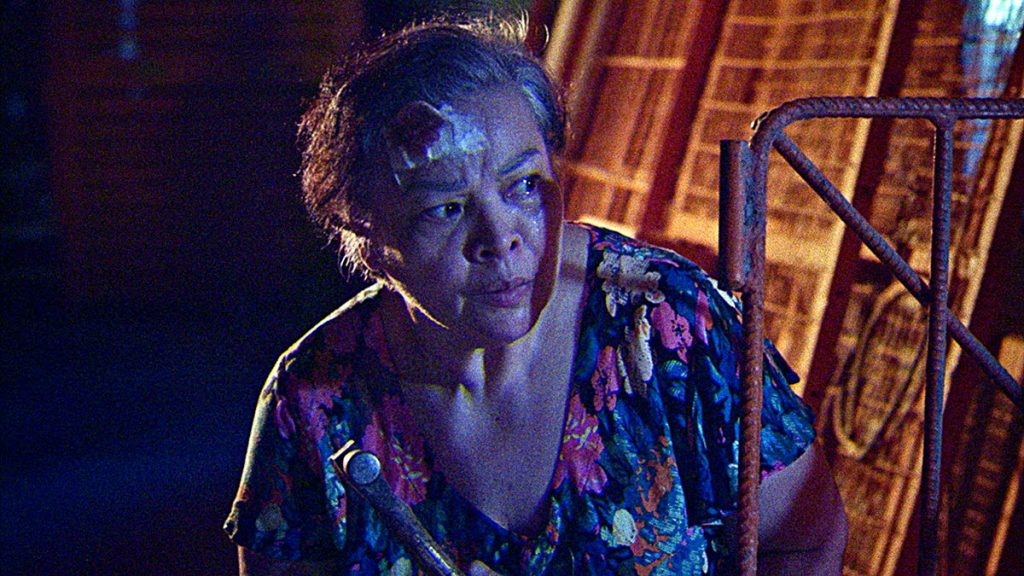Nothing reflects the love for cinema in a more self-aware manner than a meta movie does. It literally reflects the passion of the people involved in the craft of making them and plunges into the heart of the process, making it all the more accessible to us, the audience. This is exactly what makes Martika Ramirez Escobar’s Leonor Will Never Die (2022) a fascinating effort. In this film, she attempts to tie the knot between reality and delusion in a verbatim way. Unfortunately, the attempt works in fits and starts.
The problems have nothing to do with the premise. The film tells the story of Leonor Reyes, a middle-class retired filmmaker who often forgets about the regular bills to be paid. However, she doesn’t forget to buy cheap prints of Filipino action films and play them on TV.
This often frustrates Rudie, her surviving son, who looks after the home. It’s an overall dysfunctional family in which the other son has died because of a film set accident, often appearing as a transparent ghost to the duo and Valentin, their father, who is divorced from the family. In an unfortunate turn of events, Leonor is hit by a television accidentally dropped out of a window by an arguing couple, sending her into a coma. Well, that’s not the only place she goes as she enters one of her unfinished old-school action movie scripts.
As a case study on the undying art of storytelling and the love for it is an art, the film has a fantastic premise. It is interesting how the story of an isolated and fragmented woman doubles up into an epic-proportion action drama in which the masculine hero is operated by the singular heroine having her own unique adventure. It is also refreshing to have a film that doesn’t condition mental instability into the realms of dizzying darkness but plays with it.
What elevates the film is its rare and tender moments. A few sharp decisions stand out, such as the one employing the dead son of Leonor as a conversational presence to the family. It not only justifies the film’s position as a fantasy but also gives the film’s deranged tone an emotional tangibility. Sheila Francisco delivers the best performance of the lot as Leonor, a sentimental honesty informing her campy histrionics.
It must also be appreciated for introducing a broad audience to the nuances of pop culture in the Philippines. The kind of pirated-DVD cinema that can’t do without overwritten antagonists and romances that make them all the more popular for a massive number of people isn’t just referenced but internalized by the film. However, this is precisely the biggest problem with the film.
Leonor will Never Die boasts of its love for campy bloodshed but gets so immersed in them that it seems to forget its very core in the process. The editing is so relentless and bizarre at times that after a point, all of it becomes difficult to digest, if not particularly confusing. The unfinished action movie that Leonor continues churning out in her memory becomes more interesting than the ‘realistic’ chaos of her life.
While this isn’t a huge problem, it becomes one here because it goes on to show the loose grasp the makers hold on their own world-building. The budgetary constraints understandably affect the film’s ambitions. However, no amount of money can save a film. It suffers from a disorienting script that is so intent on becoming a self-aware oddity that it forgets to sharpen its characters, their motivations, and the situations they find themselves in. Other than the leading performance, the acting by the cast is also a big minus. The cast tries too hard to be playful and effortless, and it doesn’t succeed.
While Leonor will Never Die (2022) is a fascinating meta-story, it doesn’t translate into an altogether compelling film. However, it remains to be seen what Martika can do with a better budget and a more enduring and personal script.





![Meat me Halfway [2021] Review – An insightful documentary about reducetarian habit of food consumption](https://79468c92.delivery.rocketcdn.me/wp-content/uploads/2021/07/Meat-Me-Halfway-white-oak1-768x432.jpg)


